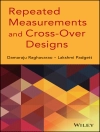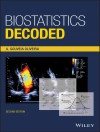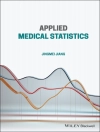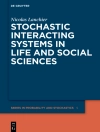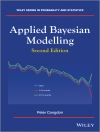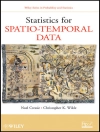This book focuses on the application of data mining techniques in cricket. It provides detailed examples of how data mining can be helpful for decision-making in sports with special reference to cricket, particularly the quantitative features related to Twenty20 cricket, the latest and the most popular format of the game. The book highlights the performance quantification of cricketers (batsmen, bowlers, all-rounders, and wicket keepers), determining the market valuation of cricketers based on their on-field performances and the effect of age on the performance of the cricketers. It also provides a comprehensive overview of the different aspects of the game where quantitative techniques are beneficial, and highlights the use of statistical and data mining tools in analysing sports-related data and objective decision-making in sports.
The book appeals to a wide readership, including postgraduate students of statistics/mathematics, data analysts, sports management bodies. It also offers data miners, such as researchers in statistics, mathematics, operations research, and computer science ideas for projects.
Table of Content
Chapter 1. Cricket, Statistics and Data Mining.-
Chapter 2. Franchisee Cricket and Cricketer’s Auction.-
Chapter 3 . Quantifying Performance of Cricketers.-
Chapter 4. Fielding Performance Measure: Issues, Concern and Solution.-
Chapter 5. Performance Based Market Valuation of Players.-
Chapter 6 . Impact of Age on Performance of Cricketers.-
Chapter 7. Performing Under Difficulty: The Magical Pressure Index.-
Chapter 8. Decision Making Approaches to Optimum Team Selection.
About the author
Hemanta Saikia is Assistant Professor at the Department of Agricultural Statistics, Assam Agricultural University, India. He previously taught statistics at the School of Business at Kaziranga University, Assam, India. He completed his Ph.D. at Assam University, Silchar, on the topic “Application of Bayesian Data Analysis and Neural Network for Evaluating Cricketers’ Performance and Compensation Packages in Twenty20 Cricket”. He is a life member of the Indian Bayesian Society, Indian Association for Social Sciences, and Health and North Eastern Economic Association. He has published over 21 research articles in various respected national and international journals.
Dibyojyoti Bhattacharjee is Professor and Head of the Department of Statistics, and Director of Internal Quality Assurance Cell, Assam University, India. He is an advisor to SPSS South East Asia for North East India and was also a visiting scholar at the Sampling and Official Statistics Unit, Indian Statistical Institute, Kolkata, India, and the University of Maryland Baltimore County, USA. He has worked with institutes like the Central Statistical Organisation, G. C. College, Gauhati University, and Assam University, India. He completed his Ph.D. in Statistical Graphics at Gauhati University, India. His research interests include data mining in sports (specifically cricket analytics) and statistical graphics. Professor Bhattacharjee completed his postdoctoral research at XLRI, Xavier School of Management, and Jamshedpur, India. He has authored 15 books and 70 research papers in respected national/international journals.
Diganta Mukherjee is Associate Professor at the Sampling and Official Statistics Unit, Indian Statistical Institute, Kolkata, India. He also serves as a technical advisor to Multi Commodity Exchange, the Reserve Bank of India, the Securities and Exchange Board of India, National Sample Survey Office, National Accounts Division, United Nations Development Programme, and Ministry of Electronics and Information Technology. He was previously associated with Jawaharlal Nehru University, Essex University, and ICFAI Business School, India. He completed his Ph.D. at the Indian Statistical Institute, Kolkata. He has published three books and over 80 research articles in various respected international journals. He is a life member of the Indian Econometric Society and Indian Statistical Institute, Kolkata. His research interests are welfare and development economics, particularly in multidimensional poverty.






